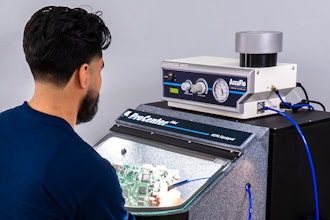
WASHINGTON (AP) — The Biden administration said Tuesday it is planning to conduct a yearly audit to verify the prices drug makers charge on a handful of the costliest prescriptions covered by Medicaid.
Under the proposal, the Centers for Medicare and Medicaid Services would require as many as 10 drug makers every year to furnish the government with proprietary and non-proprietary information as evidence to support the price it charges states, which administer Medicaid.
Drugs that cost Medicaid the most money — some as much as $2 million per treatment — will be selected for the survey.
The proposal was prompted by rising drug prices and complaints from states leaders who say they are having trouble negotiating those costs with manufacturers, said Dan Tsai, director of Center for Medicaid and Children's Health Insurance Program Services.
"We've got very high cost drugs, who have no competition," Tsai said Tuesday.
More than 90 million people are enrolled in Medicaid and CHIP, which provides the poorest Americans with health insurance.
Simply surveying the cost of the drugs won't change the price, and CMS doesn't have the power to force drug companies to change how much they charge. But the administration hopes making more information about how drug companies arrive at their pricing publicly available will put political pressure on the drug companies.
Drug makers that refuse to provide information to CMS will be referred to the U.S. Health and Human Services' Office of Inspector General, which can launch criminal and civil investigations, he said.
The proposal hasn't been finalized yet, and the public will have 60 days to weigh in on it.
The move is likely to be met with stiff resistance from drug manufacturers, who are already gearing up for a showdown later this year with the federal health agency over a new program that will allow the government to negotiate the price on the drugs Medicare spends the most money on. The agency has not yet announced which drugs will be selected for that program, but they are likely to include some of the most popular drugs, such as the blood thinner Eliquis, used by older and disabled Americans who are on Medicare.
Medicare spends about $10 billion filling Eliquis prescriptions every year.






















